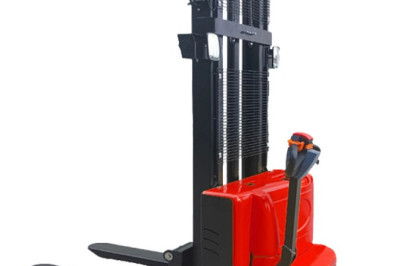views
In today's digital age, managing data efficiently is crucial for both personal users and enterprises. With data growing at an exponential rate, finding the right storage solution can be daunting. Enter the world of NAS systems, your gateway to seamless data management. But what exactly is a NAS system, and how can it benefit you? This blog post will break down everything you need to know about NAS systems, making data storage simple and accessible for everyone, from tech novices to seasoned professionals.
What is a NAS System and Why Do You Need It?
NAS, or Network Attached Storage, is a centralized storage solution that connects directly to your network. Unlike traditional external hard drives, a NAS system allows multiple users to access files simultaneously from different devices. It’s like having a personal cloud service at home or in your office, without the recurring subscription fees.
For small businesses, a NAS system offers enterprise-level features such as data redundancy, user access management, and automated backups, all within an affordable package. Imagine a scenario where data is safely backed up and easily retrievable, ensuring business continuity even in unforeseen events. For personal use, a NAS system streamlines file sharing among family members, letting you store photos, videos, and documents in one secure place.
In essence, whether you’re looking to enhance your personal digital library or seeking a robust solution for your business, NAS systems serve as an invaluable asset in the quest for efficient data management.
Understanding the Components of a NAS System
A NAS system consists of several key components, each playing a vital role in its operation. The core of any NAS system is the server, which houses multiple hard drives for data storage. These drives can be configured in various RAID setups, balancing performance and redundancy according to your needs. This setup ensures that even if one drive fails, your data remains safe and intact.
The operating system of a NAS is another crucial component, providing a user-friendly interface for managing files and deploying applications. Popular NAS brands offer their proprietary OS, designed with intuitive dashboards that simplify navigation and configuration. Whether you're setting up user permissions or scheduling backups, the NAS OS makes it easy.
Connectivity and network interfaces are also integral to a NAS system, allowing it to communicate with other devices on your network. Most NAS units come with Ethernet ports for stable and fast data transfer, with some high-end models offering Wi-Fi connectivity for more flexible placement options. Altogether, these components work harmoniously to provide a seamless data storage experience.
Setting Up Your NAS System for Success
Setting up a NAS system might seem intimidating, but it’s simpler than you might think. Begin by selecting the right NAS model that suits your storage needs. Consider factors such as the number of drive bays, processor speed, and RAM size, which determine the unit’s overall performance and capacity to handle tasks.
Once you have your NAS, follow the manufacturer’s setup instructions to connect the hardware to your network. This typically involves inserting drives into the bays, connecting to your router via an Ethernet cable, and powering on the unit. The NAS operating system guides you through the initial setup process, including creating a storage pool, configuring RAID options, and setting up user accounts.
After the basic setup, explore the NAS’s features to optimize its functionality. Enable data redundancy features, schedule regular backups, and install applications that enhance your NAS’s capabilities. Taking these steps ensures that your NAS system is not only operational but also serves as a reliable and efficient data storage solution.
Benefits of NAS Systems for Personal Users
For personal users, NAS systems offer a multitude of benefits that extend beyond mere data storage. One significant advantage is centralized media management. With a NAS system, all your photos, music, and videos are stored in one location, accessible from any connected device. This eliminates the need to juggle multiple hard drives or worry about running out of space on your devices.
Another benefit is enhanced data security. NAS systems often come with built-in security features such as password protection, encryption, and automatic backups, safeguarding your data from accidental loss or unauthorized access. This peace of mind is invaluable, particularly when storing irreplaceable memories or sensitive information.
Finally, a NAS system fosters seamless file sharing among family members. Imagine effortlessly sharing vacation photos with grandparents or streaming a movie directly from your NAS to your smart TV. These convenient features make a NAS system an ideal choice for anyone seeking to streamline their digital lifestyle.
Leveraging NAS Systems in Small Businesses
For small businesses, adopting a NAS system can revolutionize how data is managed and accessed. One of the primary advantages is improved collaboration. With a NAS system, employees can easily share documents and resources, enhancing team productivity and efficiency. This is especially beneficial for remote teams, where access to shared files is crucial for smooth workflow.
Another significant benefit is cost-effectiveness. Traditional data storage solutions often require expensive infrastructure and maintenance. In contrast, NAS systems offer enterprise-level storage capabilities at a fraction of the cost, making them accessible even for budget-conscious businesses. This allows small businesses to allocate resources to growth initiatives rather than costly IT infrastructure.
Furthermore, a NAS system enhances data protection through automated backups and redundancy features. Data loss can be disastrous for any business, but with a NAS system, you can rest assured that your critical data is secure, reducing downtime and ensuring continuity in operations.
Comparing NAS Systems to Other Storage Solutions
When considering data storage solutions, it’s essential to understand how NAS systems compare to alternatives such as cloud storage and direct-attached storage (DAS). While cloud storage offers remote access and scalability, it often comes with recurring fees and potential privacy concerns. In contrast, a enterprise NAS system provides local storage with no ongoing costs and complete control over your data.
Direct-attached storage, on the other hand, is simple and cost-effective for single users but lacks the multi-user access and network capabilities of a NAS system. NAS units excel in environments where data needs to be shared among multiple users or devices, offering a more versatile and comprehensive solution.
Ultimately, choosing between these options depends on your specific needs and priorities. NAS systems bridge the gap between affordability, functionality, and ease of access, making them an attractive choice for both personal and business use.
Choosing the Right NAS System for Your Needs
Selecting the right NAS system involves evaluating several factors to ensure it meets your requirements. Start by assessing your storage needs, considering the amount of data you currently have and anticipate accumulating. This will guide you in choosing the appropriate number of drive bays and total storage capacity.
Consider the level of data protection you require. If you handle sensitive information or cannot afford data loss, opt for a NAS system with robust redundancy features and advanced security options. Additionally, evaluate the processing power and RAM, particularly if you plan to run applications or stream high-definition content directly from your NAS.
Finally, take into account any additional features that may enhance your experience, such as cloud integration or multimedia capabilities. By carefully evaluating these factors, you can select a NAS system that perfectly aligns with your specific data storage needs.
Integrating NAS Systems with Smart Home Technology
In today’s connected world, integrating a NAS system with smart home technology can elevate your digital lifestyle. Many NAS systems offer compatibility with smart home devices, enabling seamless media streaming, automated backups, and even home surveillance.
Imagine accessing your entire media library through voice commands or setting up a secure home surveillance system using your NAS as the central storage hub. These integrations not only simplify how you manage your digital assets but also enhance the functionality of your smart home ecosystem.
By investing in a NAS system that supports smart home integration, you can unlock the full potential of your connected devices, transforming how you interact with your digital world.
Overcoming Common Challenges with NAS Systems
While NAS systems offer numerous benefits, users may encounter challenges during setup or daily use. One common issue is network configuration, which can impact the performance and accessibility of your NAS. Ensuring your network is optimized with adequate bandwidth and proper IP settings can resolve connectivity issues.
Another challenge is managing storage capacity as your data grows. Regularly reviewing and organizing your data helps prevent storage shortages and ensures your NAS operates efficiently. Implementing archiving strategies or investing in additional drives can further alleviate capacity concerns.
Lastly, navigating the NAS operating system may initially seem complex. However, most NAS brands offer extensive online resources, tutorials, and customer support to assist you in mastering the system. By proactively addressing these common challenges, you can fully enjoy the benefits your NAS system offers.
Future Trends in NAS Systems and Data Storage
The future of NAS systems and data storage is bright, with emerging technologies promising to further revolutionize how we manage data. One anticipated trend is the integration of artificial intelligence (AI) to enhance data organization, search capabilities, and automation of routine tasks within NAS systems.
Additionally, advancements in storage technology, such as non-volatile memory express (NVMe), will likely improve the speed and efficiency of NAS systems, making them even more appealing for both personal and enterprise use. These innovations will enable faster data access, reduced latency, and improved overall performance.
As NAS systems continue to evolve, staying informed about these trends will empower you to make informed decisions and maximize the potential of your data storage solution.
Making the Most of Your NAS System
In conclusion, NAS systems offer a versatile and powerful solution for anyone seeking efficient data management. By understanding the components, setup process, and benefits, you can make an informed decision and integrate a NAS system seamlessly into your digital ecosystem.
Whether for personal use or within a small business, NAS systems provide a user-friendly approach to data storage, ensuring your information is always accessible, secure, and organized. Explore the possibilities of NAS systems today and take control of your data management with confidence.











